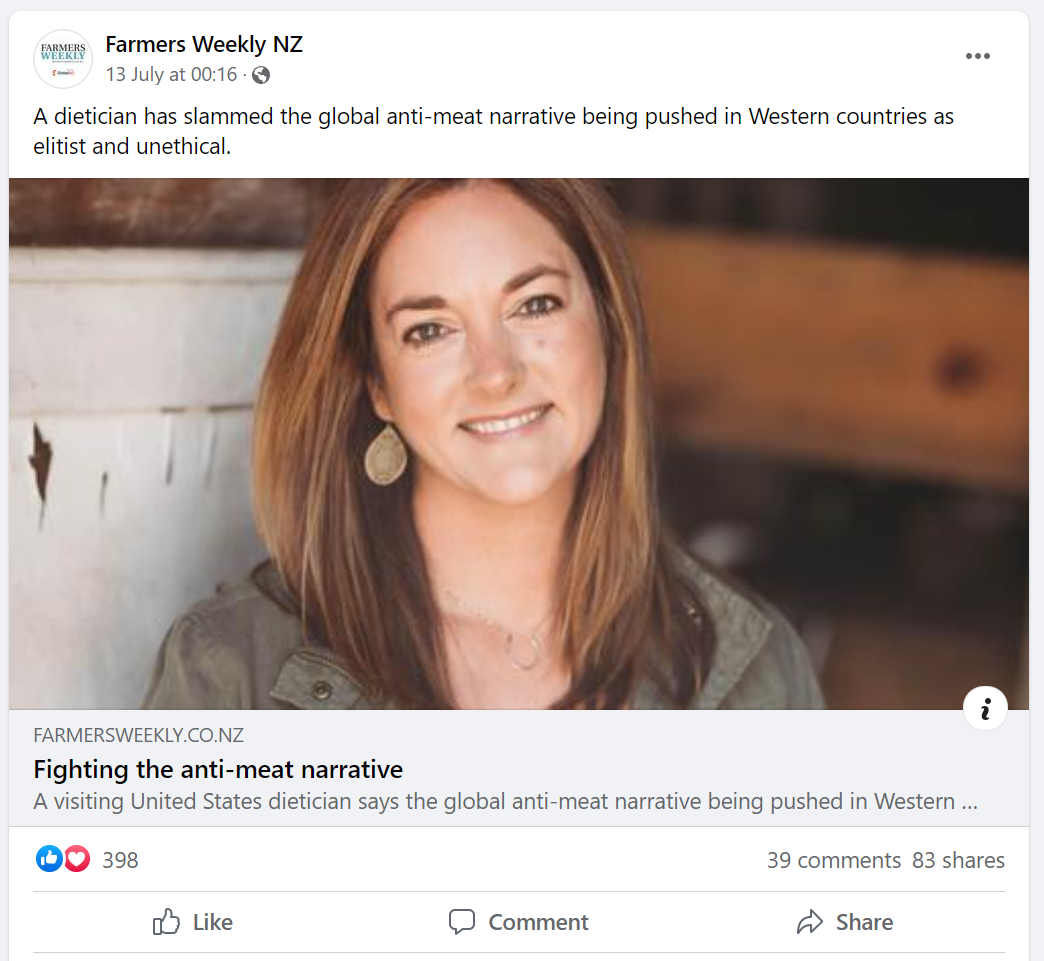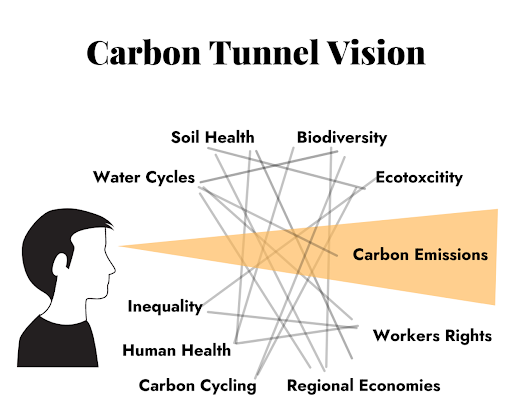Sustainable Dish Down Under
I’m back from a long trip with many stops in New Zealand and Australia. I was initially invited to speak at the Primary Industries conference in Auckland, but right after I confirmed I’d attend, I reached out to other organizations in the area in order to make the most of the long flight.
Among the highlights of the trip includes a “beef” I got into with New Zealand economic journalist Rod Oram. We were sitting on a panel about the future of New Zealand livestock when he announced that the Eat Lancet diet is the model diet we should all strive for, and that we need to “eliminate all methane” from our food system.
As you might imagine, I couldn’t let this go. Oram proved to be both completely uneducated in the fields of nutrition and basic biology, yet shockingly confident at the same time.
It made for a frustrating conversation where he was dismissive of my explanation of the biogenic carbon cycle, and couldn't seem to care less about the burden of global nutrient deficiencies and how red meat is one of the best tools to solve them. He only cared about emissions, and said he didn’t “believe” in the carbon tunnel vision that I talked about. I calmly said that we need to look at data, not “feelings” when it comes to nutrition and methane’s impact on global warming.
Rod is the perfect example of suffering from Carbon Tunnel Vision, described in this image. Overall, the media has no understanding of science (Rod reports on agriculture yet his wheelhouse is economics, not science). Politicians and the general public are overly focused on emissions yet fail to account for the BENEFITS livestock have on overall ecosystem function, rural economics, and the fact that methane if a flow gas and breaks down after 10 years, plus well-managed cattle can sequester carbon.
Who is really driving Carbon Tunnel Vision? Well, it certainly does benefit the alternative plant-based protein industry. They can’t win on nutrition, they can’t win on water cycles, they can’t win on habitat (their inputs aren’t even derived from organic monocrops), and they can’t win on supporting rural economies, but the only part of the argument they seemingly CAN win on is “emissions”.
The result is governments all over the world making short-sighted decisions to drastically cut emissions from the livestock sector. Whether this is culling cows in Ireland (which will not reduce demand for their products, simply put Irish farmers out of business and shift the EU demand for meat and dairy products to another country), to people buying Welsh farmland, taking it out of food production and rewilding it, for carbon credits, to the policy I learned about in New Zealand where farmers are encouraged to take entire sections of their producing grazing land and plant non-native mono-crop trees which will be a closed canopy, not even allowing for a silvopasture system to allow grazing. All of this is madness, and it’s only getting worse.
I really hope to help the livestock industry take back the conversation and stop being reactive. Yes, emissions should not be ignored, but there’s a much bigger story to tell and its time the red meat sector owned the dialogue in an unapologetic way.
Meat is nutritious, and there’s never been any study to prove it causes cancer or heart disease. It can turn food we can’t eat on land we can’t crop into the most important food for humans, addressing the most common nutrient deficiencies worldwide. And when managed well, grazing animals are a benefit to ecosystem function, providing habitat for wildlife, increasing biodiversity, improving the water holding capacity of the soil, mitigating fire risk, and benefiting soil health.
I’m grateful to Primary Industries, Silver Fern Farms, and a special thanks to Fiona Windle of Beef + Lamb NZ who organized my appearance on the morning breakfast television show (a great interview!) plus two other articles.
Towards the end of my trip, I spoke at RCS Convergence to a friendly group of regenerative ranchers who deal with much more brittle conditions than the lush pastures I saw in New Zealand. Foot and Mouth disease is a looming threat from Indonesia, and many farmers I spoke to are shocked that the government isn’t doing more to prevent its spread, which unfortunately seems inevitable. I also learned about “Lumpy Skin Disease” from a vet who feels the likelihood of this painful condition infecting Australian cattle to be more likely than Food and Mouth because it’s spread by insects.
On the positive side, I did learn about the growing business of goat grazing in dry areas. Goats prefer the woody brush that cattle won’t eat, cutting down on fire risk, and it seems there’s a strong market for goat meat in the United States, especially in ethic populations on the coasts.
I fully enjoyed my adventure down under and have already been invited back for May 2023 to speak in Sydney so I expect another string of speaking engagements, and possibly some extra time to tour farms. One important distinction I noticed among New Zealand and Australian livestock producers is the understanding that it can be seen as elitist to only promote grass-fed beef. The idea that we all need to eat “less meat, better meat” is very strong in the United States and I fear it ends up alienating producers who could be converting to better practices, plus it paints feedlot finished beef as “evil” and unhealthy.
In the US, there’s a massive polarization between grass fed producers who seem to think they're superior to typical ranchers, and that typical beef is poison. We need to stop this. The folks I spoke to in New Zealand and Australia understand that there are many people who can’t access regenerative beef, yet need that nutrition, so they understand that typical beef has a place in our food system. We can advocate for better food production systems while acknowledging the nutritional benefits meat has to those who need it.
Diana Rodgers, RD




